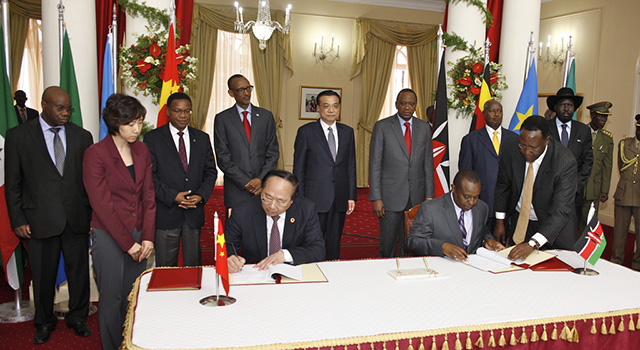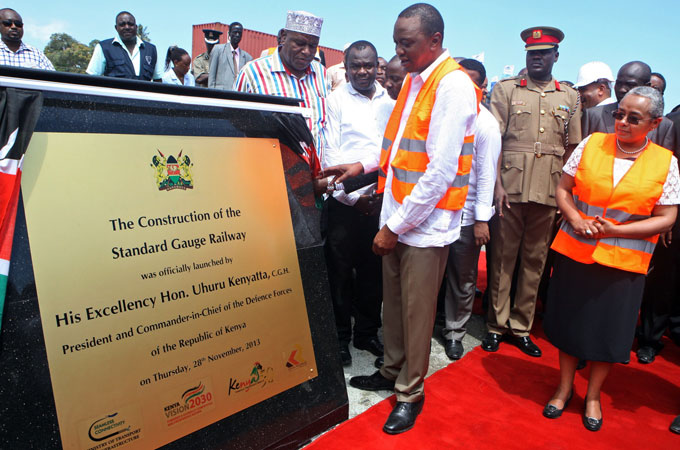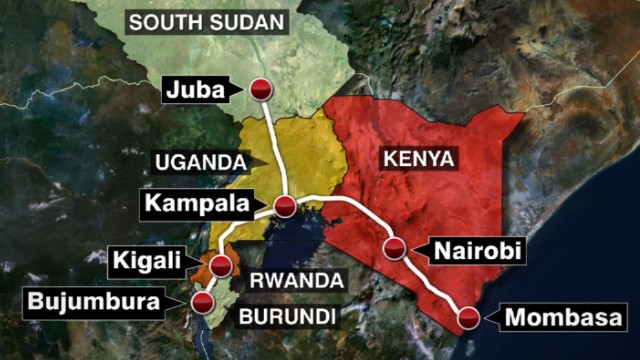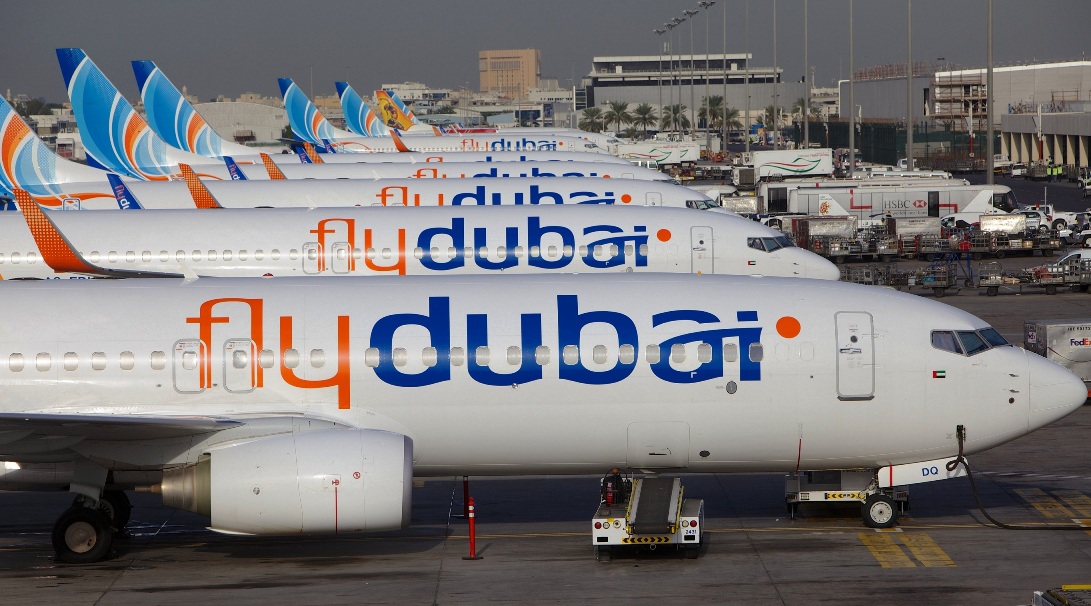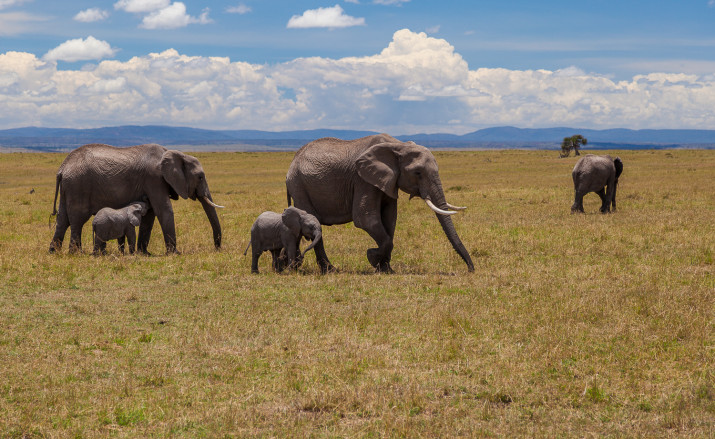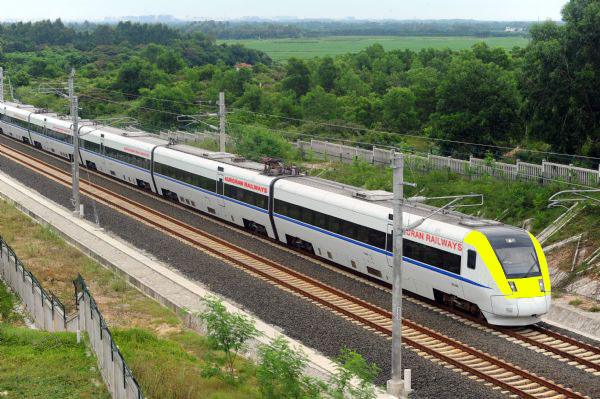

Work on the Standard Gauge Railway can officially begin. On Friday, Kenya’s Cabinet secretary for National Treasury and the President of the China Exim Bank signed the financing agreement for the Standard Gauge Railway at State House Nairobi. Kenya’s president Uhuru Kenyatta and Chinese Premier Li Kequiang were joined by Presidents Paul Kagame of Rwanda, Yoweri Museveni of Uganda and Salva Kiir of South Sudan. Kenya is set to pay 10% (Kshs 33 Billion) of the total cost while The Exim Bank of China will pay the remaining 90% (Kshs 298 Billion).
The Standard Gauge Railway will be a modern high speed and capacity railway. Presently it takes around 10 hours to travel from Nairobi to Mombasa. With this railway it will take 30 minutes at a projected speed of 120km per hour and freight will take roughly 8 hours. Business within the East African region will be faster and more efficient, giving way to economic and livelihood benefits.
Work on the Standard Gauge Railway will begin in October of this year and is estimated to take 4 years to complete. The first phase of the project, which is 609km, will run from Mombasa to Nairobi. The next phase will move inside Kigali, Rwanda and Juba in South Sudan. Upon its completion the railway is expected to immensely benefit the East African region.
Apart from the Standard Gauge Railway line project, the Chinese Government pledged to assist Kenya in building an industrial park to support the manufacturing sector, agreed to support the repatriation of Somali refugees in Kenya, pledged Kshs860 million for wildlife conservation, pledged Kshs5.1 billion for a crop molecular biology laboratory, will assist in a network upgrade of Kenya’s electricity supply, establish a China- Africa Development Bank in Nairobi and Beijing to pump in Kshs 170 billion, and a China-Africa Research Center will also be funded at a cost of Kshs 5.1 billon. South Sudan will also benefit with the funding of Kshs748 million for Humanitarian causes. The time frame of all these projects hasn’t been announced, but the anxiety for the Kenyan taxpayer is surely mounting from the implications of these trade deals.



